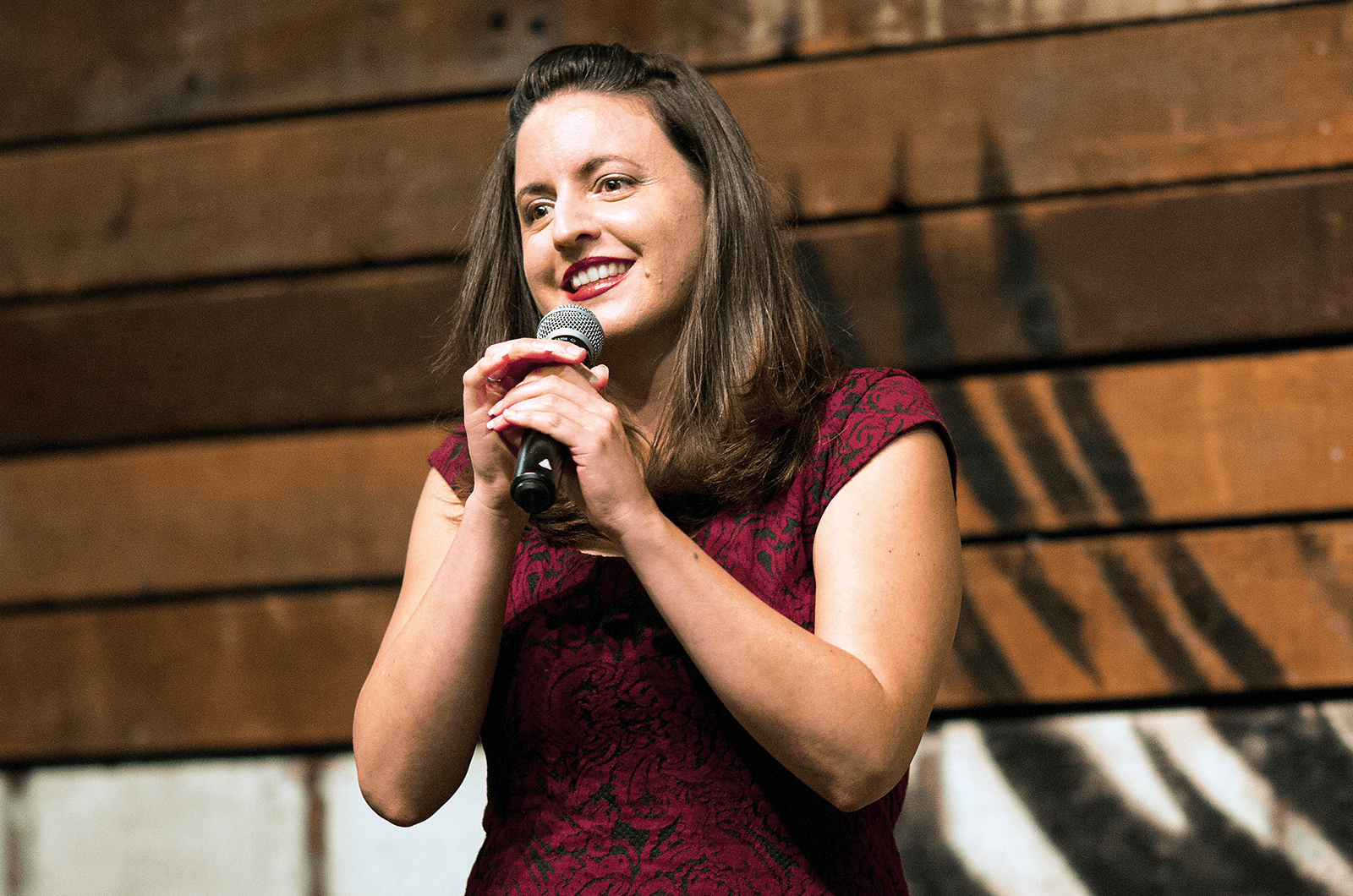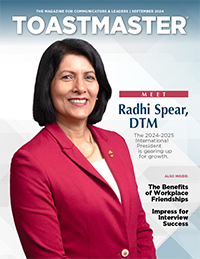 Author Nina G
Author Nina GAs a stand-up comedian, I have found myself in some more-than-interesting situations. The most memorable was the night a fight broke out just as I was getting onstage. I kept performing. Then the police came. I kept performing. Then the person of interest ran out of the room. I kept performing. Finally, they dragged him out in front of the stage in handcuffs as he yelled at the bartender.
How was I able to keep going? Simple: I have a stutter, and because of that, I have been interrupted my entire life. In fact, I’ve been interrupted so many times in conversations that I have learned not to pay attention to interruptions. I mean, when you live your life having others guess what words the repetitive sounds you’re making might lead to, you learn to deal with disruptions from others. In most new speaking situations, I address the situation upfront by saying, “I stutter. You are just going to have to wait for all my brilliant ideas!”
Growing up in Northern California, I dreamed of becoming a stand-up comedian. For years I wrote jokes, researched events where newcomers could try out their material, and planned for my debut. I was 17 when I realized I had never seen a comedian stutter, and I decided I had to walk away from my dream.
Nearly 20 years later, I attended a stuttering conference that challenged many of my misconceptions. I realized that internalizing interruptions from others was holding me back each time I talked. But it just wasn’t conversations. It extended to relationships, wishes, hopes, and dreams. They all had been interrupted by not wanting my voice to be a burden to others. I realized that the way I spoke was valid in all situations, and my goal became to reclaim space I had given up. Six months after the conference, I ventured onstage in San Francisco, California, and told my first joke. I have been hooked ever since.
The club treated me exactly how I had hoped—like everyone else.
Once I felt comfortable doing stand-up, I wanted to move into the world of professional speaking. I prefer speaking over writing, which may seem ironic except that in addition to stuttering, I also have dyslexia, and writing is often difficult for me. Knowing that public speaking involves writing speeches, I decided to approach it like I did stand-up and find a way to practice and hone my speeches in a venue where I could mess up and feel safe doing so. Luckily, many people I know who stutter have joined Toastmasters and recommended it as a safe and friendly place to practice speaking. I found a club and decided to try it.
Of course, as a person who stutters, I am often leery of meeting people. How will they respond to me? Will they give me a patronizing standing ovation just for saying my name? Will I be met with a barrage of advice for how to cure my speech disfluency? Happily, at the Watergate Toastmasters Club in Emeryville, California, I was met with attentive listening and good feedback. The club treated me exactly how I had hoped—like everyone else.
As a professional speaker, I appreciate what Toastmasters meetings offer me. I can not only practice but also experiment with my speeches. Toastmasters is the gym where I work out my speaking muscle for game day when I am paid to speak.
Today, in addition to comedy, I do trainings and keynotes on disability justice and accessibility. I integrate my own experience with stuttering and dyslexia and use humor to help people understand disabilities and build a more accessible society. I’ve given a TEDx Talk and written a book, which led to TV and radio appearances. It’s been incredibly empowering. People with disabilities often second-guess their capabilities and internalize what they can and can’t do based on other people’s assumptions. Don’t be afraid to challenge assumptions in yourself and in society. It was only when I spoke up that I found my authentic voice and brought it onstage.
Nina G lives in Northern California and is a comedian, professional speaker, storyteller, writer, disability activist, and educator. She is the author of Stutterer Interrupted: The Comedian Who Almost Didn’t Happen. Find out more at www.ninagcomedian.com.


 Previous
Previous
 Previous Article
Previous Article

